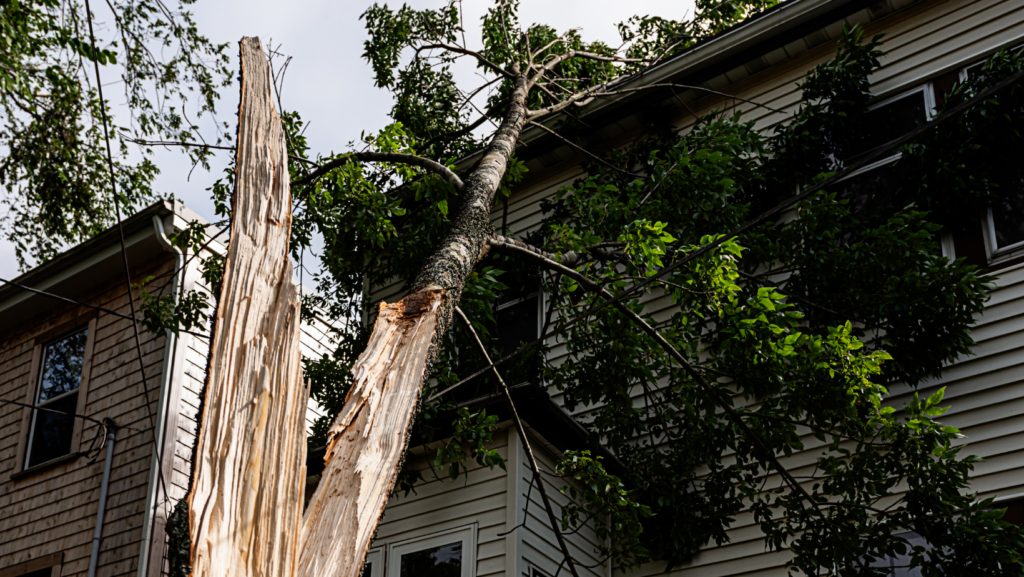When there’s hurricane damage to apartments, who bears what responsibility?
Hurricanes are a fact of life in Florida. Storm centers predict that while this hurricane season might be a little lower than average in terms of activity, there’s still the potential for several significant storms in 2023.
When you’re a homeowner in Florida, you might have certain types of insurance coverage and hurricane-proof your property.
What about if you’re a renter, though? Especially a renter in an apartment—then what?
How can you protect yourself and your belongings, and what’s the responsibility of your landlord? If you’re a landlord, do you have a legal obligation to hurricane-proof your rental?
What’s the Landlord’s Responsibility?
Living in an apartment gives you some unique things to consider when preparing for a hurricane.
One of the most common ways a homeowner might keep their home prepared for hurricanes is by installing hurricane shutters.
The shutters usually go on the outside of a structure, and they’re a way to prevent broken glass from high winds and flying objects. However, hurricane shutters aren’t cheap, and a landlord is not required to install them on a rental property. No law says a landlord in Florida has to protect properties or the people who live there if there’s a storm.
A landlord is required to keep properties in good repair and capable of resisting normal forces, as it’s written into the law. However, hurricane winds aren’t normal forces, so tenants don’t have any recourse if a landlord doesn’t protect their property from storm damage.
Sometimes, which is fairly rare, a lease might include details about who would be responsible for boarding windows and taking other steps in the event of a storm, but again this isn’t common.
Tenants aren’t responsible for window damage if it occurs because this is part of the structure of their apartment. The landlord’s insurance policy should cover this. Anything structural or part of your apartment building that’s damaged is the responsibility of your landlord.
The Residential Landlord and Tenant Act in Florida says if you can’t live in your home because a hurricane damaged it, you might have the legal grounds to end your lease. You might also be eligible to have your security deposit returned to you.
Unfortunately, if you’re a renter, this doesn’t address many other concerns you might have leading up to a storm or in its aftermath.
What If Your Personal Property Is Damaged?
From a tenant’s perspective, if your property is damaged during a storm, your best protection is your own insurance.
Renters’ insurance is based on particular types of damage instead of the type of storm. That means if you’re in a hurricane and live in an apartment with renters insurance, it might cover wind, lightning, or hail damage.
As with homeowners insurance, most perils or damages associated with a hurricane are covered under renters’ insurance, but flood damage isn’t.
If you live in Florida and you’re a renter, consider buying a separate policy for flooding.
Your landlord might have insurance coverage for personal property in your apartment, but it’s not required.
In Florida, since the chances of a hurricane are so high, many apartment communities require renters to have insurance, including flood insurance.
Preparing for a Hurricane If You Live in an Apartment
If you live in an apartment, many ways you would prepare for a hurricane will be similar to living in a single-family property.
You can shutter your windows; the landlord might supply shutters if you ask. If you have an outdoor space like a balcony, you should move everything inside as a storm approaches and have an evacuation plan in place.
Everyone who lives in a place prone to hurricanes should also have an emergency supply, including non-perishable foods, personal documents, water, and medications.
If you don’t already have renter’s and flood insurance, it’s a good idea to look into that because it’s the main way you’re going to protect your belongings if there’s a storm.
Summing Up
Hurricane damage to apartments can get tricky. The things to remember are; first, landlords are under no legal responsibility to do anything to protect tenants if a hurricane is approaching, including installing storm shutters or boarding up windows. If you are a renter and you’re concerned about it, your best option is to choose a rental community with protections already in place.
If you’re a landlord, though you don’t have the explicit legal obligation to make hurricane preparations, that doesn’t mean it’s not a good idea to do so. Keeping your property in good condition overall can save time and money later on, including if there’s a major storm. You want the community to be up and running again as quickly as possible following a storm, so there’s an incentive to be proactive about preparations.
Disaster Management Recovery Group works to provide comprehensive assessments of storm damage to expedite the process of working with an insurance company. Contact us to learn more, whether you have a residential or commercial property.


